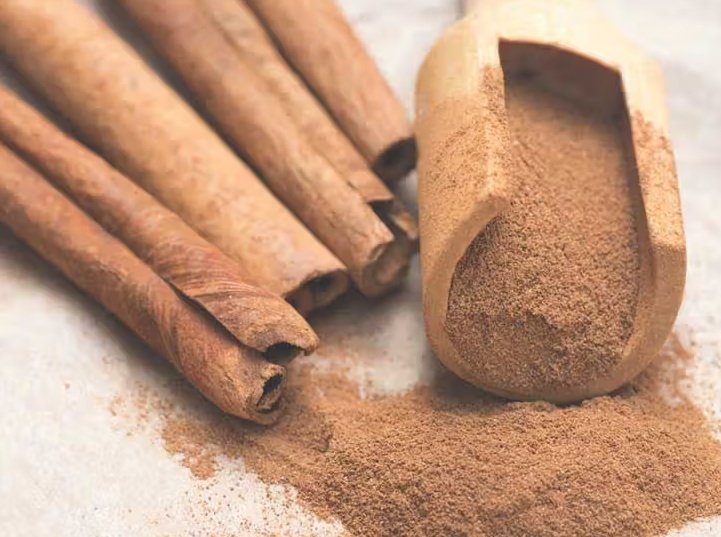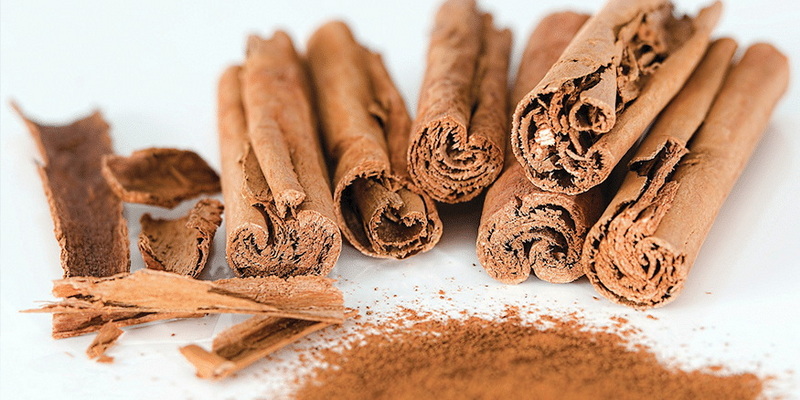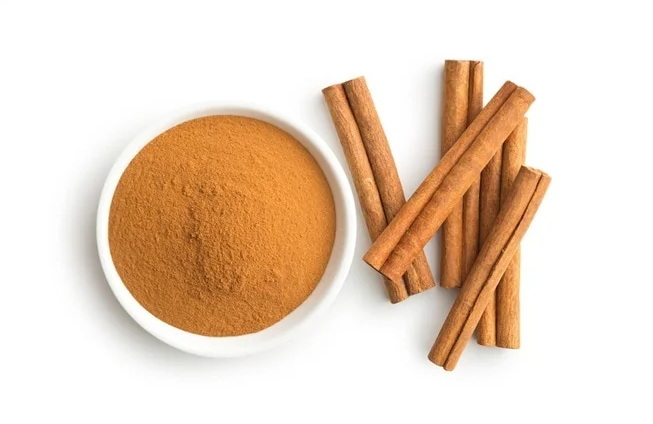Content Menu
● Introduction to Cinnamon
>> Cinnamon Harvesting Process
● Health Benefits of Cinnamon
>> Antioxidant Properties
● Dosage of Cinnamon Bark Extract
>> Dosage Considerations
● Potential Interactions and Side Effects
>> Interactions with Medications
>> Side Effects
● Cinnamon in Traditional Medicine
>> Traditional Uses
● Cinnamon and Weight Loss
>> Mechanism of Action
● Additional Health Benefits
>> Anti-Inflammatory Effects
>> Cognitive Function
● Cinnamon in Cooking
>> Culinary Uses
● Cassia vs. Ceylon Cinnamon
>> Coumarin Content
● Additional Uses of Cinnamon
>> Skincare
>> Oral Health
● Historical Use of Cinnamon
>> Ancient Trade Routes
>> Cultural Significance
● Potential Risks of Cinnamon Consumption
>> Minimizing Risks
● Summary of Key Points
● Conclusion
● FAQs
>> 1. What are the main types of cinnamon?
>> 2. How is cinnamon harvested?
>> 3. What are the health benefits of cinnamon?
>> 4. What is the recommended dosage of cinnamon?
>> 5. Can cinnamon interact with medications?
● Citations:
Cinnamon, derived from the bark of the Cinnamomum tree, is renowned for its culinary and medicinal properties. It is commonly used in cooking and as a dietary supplement due to its potential health benefits, including lowering blood sugar levels, improving heart health, and reducing inflammation. However, determining the appropriate dosage of cinnamon bark extract can be challenging due to the variability in studies and individual health needs. This article will delve into the benefits, dosages, and considerations for using cinnamon bark extract.

Introduction to Cinnamon
Cinnamon is available in two main types: Cassia cinnamon and Ceylon cinnamon. Ceylon cinnamon, also known as "true cinnamon," is considered superior due to its lower coumarin content, which is a compound that can be toxic in high doses. The harvesting process of cinnamon involves carefully peeling the bark from the tree, drying it, and rolling it into the familiar cinnamon sticks.
Cinnamon Harvesting Process
The harvesting of cinnamon is a labor-intensive process that involves several steps:
1. Peeling: Skilled farmers carefully peel the bark from the Cinnamomum tree.
2. Drying: The peeled bark is dried in the sun or using machines to remove moisture.
3. Rolling: The dried bark is rolled into sticks or ground into powder.
Health Benefits of Cinnamon
Cinnamon has been studied for its potential health benefits, including:
- Blood Sugar Control: Cinnamon may help lower blood sugar levels and improve insulin sensitivity.
- Heart Health: It can help reduce blood pressure and cholesterol levels, which are risk factors for heart disease.
- Antioxidant Properties: Cinnamon contains antioxidants that can help protect against oxidative stress and inflammation.
Antioxidant Properties
Cinnamon's antioxidant properties are attributed to its high content of polyphenols, which can neutralize free radicals and reduce oxidative stress. This can contribute to its potential benefits in reducing inflammation and improving overall health.
Dosage of Cinnamon Bark Extract
The recommended dosage of cinnamon varies depending on the intended health benefit. For general health benefits, a common range is between 1 to 3 grams per day. However, some studies have used higher doses up to 6 grams per day for specific conditions like diabetes.
Dosage Considerations
- Glycemic Control: 2 to 4 grams per day may be effective for blood sugar management.
- Blood Lipids: Doses ranging from 1 to 6 grams per day have been studied for improving cholesterol levels.
- Pregnancy and Lactation: Cinnamon is generally recognized as safe in food amounts, but high doses should be avoided due to insufficient data.
Dosage Summary
| Health Benefit | Recommended Dosage |
| Glycemic Control | 2-4 grams/day |
| Blood Lipids | 1-6 grams/day |
| General Health | 1-3 grams/day |
Potential Interactions and Side Effects
Cinnamon can interact with certain medications, such as blood thinners and diabetes medications, and may enhance their effects. High doses of cinnamon, especially Cassia cinnamon, can be harmful due to its coumarin content.
Interactions with Medications
- Blood Thinners: Cinnamon may increase the risk of bleeding when taken with anticoagulant medications.
- Diabetes Medications: It can enhance the effects of diabetes medications, potentially leading to hypoglycemia.
Side Effects
Common side effects of cinnamon include gastrointestinal upset and allergic reactions. High doses may lead to more severe side effects due to coumarin toxicity.
Cinnamon in Traditional Medicine
Cinnamon has been used in traditional medicine for centuries, particularly in Ayurvedic and Chinese medicine. It is valued for its warming properties and is often used to treat digestive issues and colds.
Traditional Uses
- Digestive Issues: Cinnamon is traditionally used to alleviate symptoms of indigestion and diarrhea.
- Cold and Flu: It is believed to help reduce the severity of cold and flu symptoms.

Cinnamon and Weight Loss
Some studies suggest that cinnamon may aid in weight loss by improving insulin sensitivity and reducing hunger. However, evidence is limited, and more research is needed to confirm its effectiveness for this purpose.
Mechanism of Action
Cinnamon may help regulate blood sugar levels, which can influence hunger and metabolism. This could potentially support weight loss efforts when combined with a healthy diet and exercise.
Additional Health Benefits
Anti-Inflammatory Effects
Cinnamon has been shown to have anti-inflammatory properties, which can help reduce inflammation and alleviate symptoms of conditions like arthritis. This is attributed to its ability to inhibit certain inflammatory pathways in the body.
Cognitive Function
Some studies suggest that cinnamon may improve cognitive function and memory. This could be due to its antioxidant properties, which help protect the brain from oxidative stress.
Cinnamon in Cooking
Cinnamon is a versatile spice used in a variety of dishes, from sweet baked goods to savory meals. It adds warmth and depth to flavors, making it a staple in many cuisines around the world.
Culinary Uses
- Baked Goods: Cinnamon is commonly used in cakes, cookies, and pastries.
- Savory Dishes: It is used in stews, curries, and as a seasoning for meats.
In conclusion, cinnamon bark extract is a valuable supplement with numerous health benefits. However, it is essential to use it responsibly and consult with a healthcare provider to ensure safe and effective use.
Cassia vs. Ceylon Cinnamon
Cassia cinnamon, which is more commonly available, contains higher levels of coumarin compared to Ceylon cinnamon. This makes Ceylon cinnamon a safer choice for regular consumption.
Coumarin Content
- Cassia Cinnamon: Contains higher levels of coumarin, which can be toxic in large doses.
- Ceylon Cinnamon: Has lower coumarin content, making it safer for long-term use.
Coumarin Content Comparison
| Type of Cinnamon | Coumarin Content |
| Cassia Cinnamon | Higher |
| Ceylon Cinnamon | Lower |
Additional Uses of Cinnamon
Skincare
Cinnamon has antimicrobial properties that can help in skincare by reducing acne and improving skin health.
Oral Health
Cinnamon can be used as a natural mouthwash due to its antibacterial properties, which help reduce bad breath and gum inflammation.

Historical Use of Cinnamon
Cinnamon has been valued for centuries, not only for its flavor but also for its medicinal properties. It was a highly prized spice in ancient civilizations, including Egypt and Rome.
Ancient Trade Routes
Cinnamon was traded extensively along ancient routes, such as the Silk Road, due to its high demand and value.
Cultural Significance
Cinnamon is deeply rooted in many cultures, often symbolizing warmth, hospitality, and prosperity. It is used in various rituals and ceremonies around the world.
Potential Risks of Cinnamon Consumption
While cinnamon is generally safe, high doses can pose risks due to its coumarin content. It is essential to be aware of these risks and take steps to minimize them.
Minimizing Risks
- Choose Ceylon Cinnamon: Opt for Ceylon cinnamon due to its lower coumarin content.
- Monitor Dosage: Ensure that the dosage does not exceed recommended levels.
- Consult Healthcare Providers: Especially if you are taking medications or have underlying health conditions.
Summary of Key Points
- Health Benefits: Cinnamon may help with blood sugar control, heart health, and has antioxidant properties.
- Dosage: Typically ranges from 1 to 3 grams per day for general health benefits.
- Potential Interactions: Can interact with certain medications like blood thinners and diabetes medications.
- Cultural Significance: Cinnamon has been valued for centuries in various cultures.
Conclusion
In conclusion, cinnamon bark extract is a versatile and beneficial supplement that can enhance health and well-being when used appropriately. Its rich history, cultural significance, and potential health benefits make it a valuable addition to a healthy lifestyle.
Cinnamon bark extract offers numerous health benefits when used responsibly. Understanding its potential risks and taking precautions can help maximize its benefits while minimizing adverse effects.
In conclusion, cinnamon bark extract is not only a valuable dietary supplement but also a spice with rich cultural and historical significance. Its potential health benefits make it a popular choice for those seeking natural remedies.

FAQs
1. What are the main types of cinnamon?
Cinnamon is primarily available in two types: Cassia cinnamon and Ceylon cinnamon. Ceylon cinnamon is considered superior due to its lower coumarin content.
2. How is cinnamon harvested?
Cinnamon is harvested by carefully peeling the bark from the Cinnamomum tree, drying it, and then rolling it into sticks or grinding it into powder.
3. What are the health benefits of cinnamon?
Cinnamon may help with blood sugar control, heart health by reducing blood pressure and cholesterol, and it has antioxidant properties that can reduce inflammation.
4. What is the recommended dosage of cinnamon?
For general health benefits, a common dosage range is 1 to 3 grams per day. However, doses can vary based on specific health conditions.
5. Can cinnamon interact with medications?
Yes, cinnamon can interact with certain medications like blood thinners and diabetes medications. It is important to consult with a healthcare provider before using cinnamon supplements.
Citations:
[1] https://draxe.com/nutrition/cinnamon-pills-benefits/
[2] https://www.youtube.com/watch?v=HLkDTq6GTRE
[3] https://pmc.ncbi.nlm.nih.gov/articles/PMC11155465/
[4] https://examine.com/supplements/cinnamon/
[5] https://www.youtube.com/watch?v=bDoaPIKT_Xg
[6] https://www.sunnycaribbee.com/cinnamon-tea-10-tea-bags.html
[7] https://www.drugs.com/npp/cinnamon.html
[8] https://www.istockphoto.com/videos/cinnamon-bark
[9] https://www.webmd.com/vitamins/ai/ingredientmono-330/ceylon-cinnamon
[10] https://www.rxlist.com/supplements/cinnamon_bark.htm
[11] https://www.nccih.nih.gov/health/cinnamon































